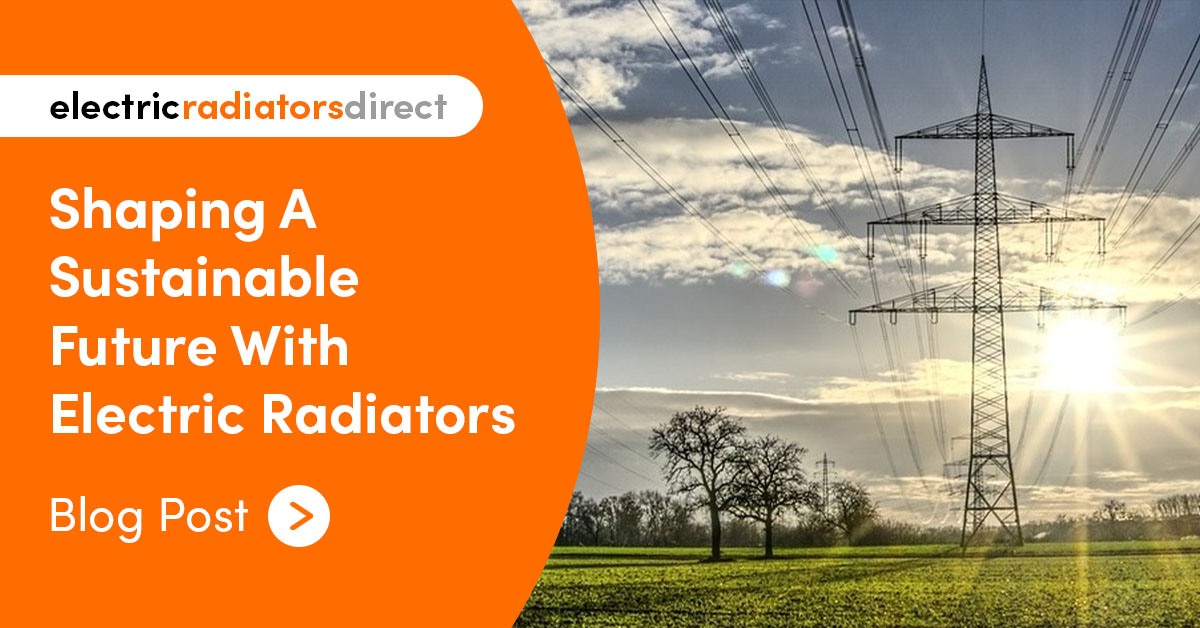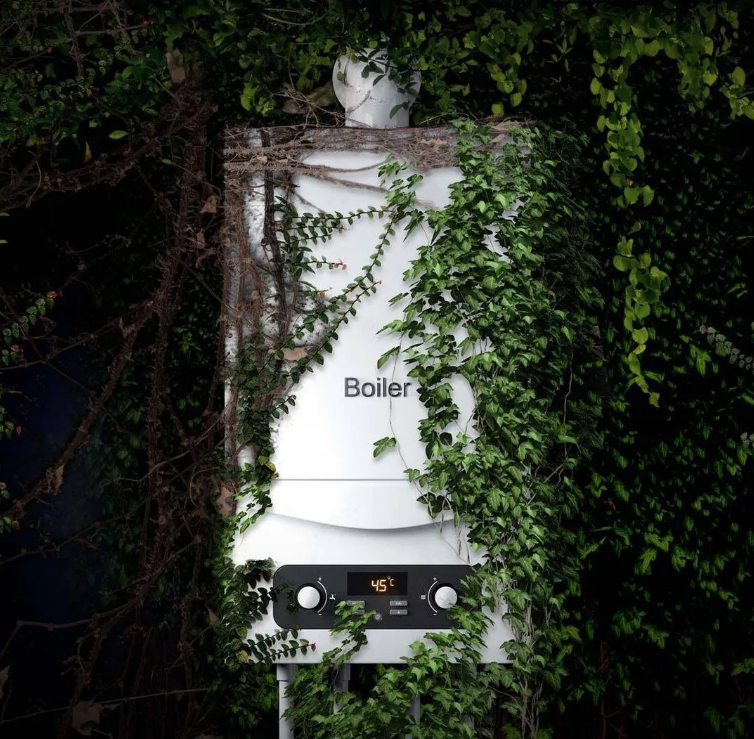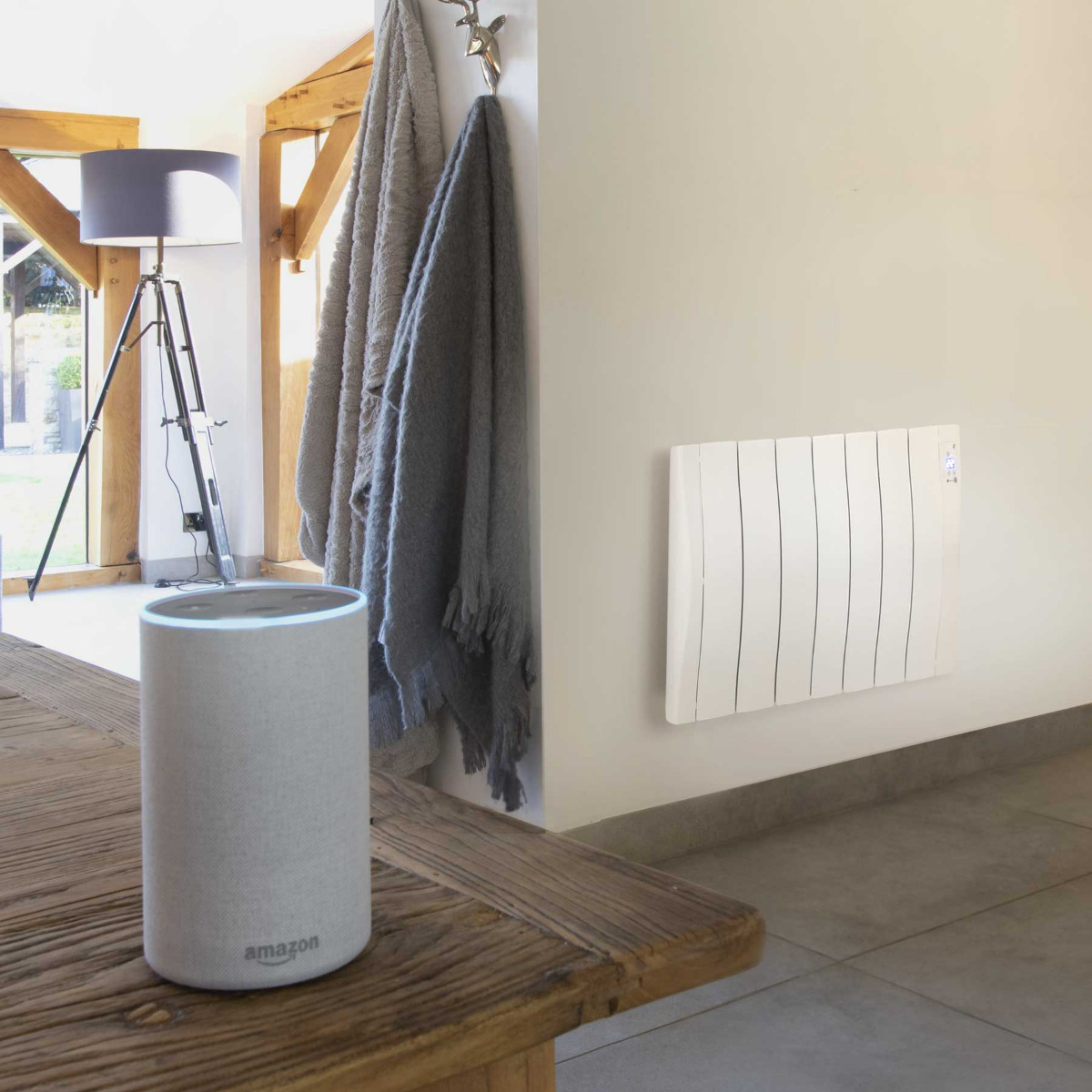

Last updated: Februrary 2024
In our thoughtful, eco-conscious era, the world as we know it is changing. In response to the increasing threat of pollution, low efficiency, and our country’s overall overuse of energy, the UK government is in the process of administering drastic changes that should readdress the imbalance – creating a sustainable future free from fossil fuels, pollutants, and waste.
In the Green Age of electric cars, clean air zones, and alternative fuels, what options does the average homeowner have when choosing a heating system? Is there a “green” alternative to conventional central heating that satisfies both our need to keep warm and save the planet? In light of the proposed changes to our environmental economy, it’s time to reconsider your options and explore electric radiators: an efficient alternative to traditional heating methods.
Check out our video! We look at what it means to be truly carbon neutral and how electric radiators and renewable energy make the perfect pair.
The UK’s commitment to energy efficiency
These days, tabloids are awash with facts and figures detailing the UK’s ambitious environmental targets: “zero avoidable waste by 2050,” “electric vehicles by 2040,” and “no gas boilers in new homes by 2025,” being the most prevalent and recent government initiatives. While this may at times seem like conjecture, after years of deliberation, our society as a whole is making the move away from older and inefficient technologies towards low-carbon, energy-efficient systems. Whether that’s via electric vehicles, the gradual phasing out of gas, or through renewed interest in alternative solutions that help to reduce our impact on the planet, the UK is striving to secure its place in a changing, environmentally aware landscape.
By and large, the UK is succeeding too as “[UK] emissions were 43% below 1990 levels in 2017: the first carbon budget has been met and the UK is currently on track to outperform both the second and third.” But what can be done on an individual level to curb our energy use? According to a report from the Committee on Climate Change, they suggest the government supports the “simple, low-cost options” when tackling the reduction of emissions.
With the Gas Boiler Ban 2025 on the horizon and the UK government continuing to work towards net zero targets, sustainable heating is more prevalent than ever.
What are the simple, low-cost options for reducing emissions?


14% of greenhouse emissions come from domestic energy use; a sizeable chunk when you consider the difference this percentage could make to the UK’s overall efficiency. In the past decade or so, domestic energy has been monopolised by central heating: a system of continually reheated water that’s fed to different rooms in your home from a gas burning boiler, using multiple lengths of pipework. While this established, tried-and-tested method of keeping warm undoubtedly works, it’s not without its faults – of which, energy-efficiency, or rather the lack of it, is the main issue. In recent news, the government plans to scrap gas boilers entirely in new homes, favouring more sustainable means of heating properties.
Taking this into consideration, one of the simplest ways to cut emissions and save you money on your bills, aside from proper insulation and general energy-saving tips, is to switch to an electric heating system. Where going electric was once a costly, relatively unwieldly affair, modern electric radiators have advanced tenfold in recent years – offering a minutely controllable, versatile heating solution that stands as a real contender in the battle against fossil fuels.
Electric heating systems: the future of domestic and commercial heating
Whether you’re a homeowner, property developer, business owner, or tradesman, an electric heating system has a myriad of benefits over central heating – making it the ideal choice for domestic properties, flats, holiday homes, and commercial spaces.
All electric radiators are 100% efficient at point of use, which means all the power drawn from the wall is converted into heat, with zero waste or emissions. When used with renewable energy technology, they can sustainably support your premises year in, year out, with minimal impact on the environment. Though not all of the electricity from the grid is currently sourced by via green methods, this is set to change in the future. In June this year, a historic milestone was passed where more energy was produced from renewable sources than from fossil fuels, so if this trend continues, the majority of the electricity we generate will eventually be from green methods. This means, over time, electric radiators will have less and less environmental impact for truly future-proofed home and business heating.
Smart electric radiators
Most, if not all, modern electric radiators come with detailed programming capabilities that allow you to control exactly when your heating is active, helping to cut down wasted energy by restricting operating times. Smart electric radiators go a step further, offering WiFi and Bluetooth control that you can access from the palm of your hand via a smartphone, tablet, or PC – allowing “off the cuff” temperature management wherever you are in the world, so you can always ensure your heating is never left running by accident.
Unlike central heating, electric radiators come as independent units that can be used together to create an entire system, which means you can pick and choose what colour, style, or design of heater you’d like for each room in your home. Aside from the obvious aesthetic benefits this brings, it also allows you to control each heater separately, so you can save money and minimise waste by only heating the rooms you’re using, rather than needlessly heating your entire space.
Electric radiators, infrared heaters and heat pumps are all greener alternatives to gas central heating as they do not rely on the combustion of fuel. Those that come with smart controls offer greater scope to manage your system, enabling greater efficiency when it comes to heating your home.
Learn more about electric heating's eco credentials with our handy video >
Help shape a sustainable future by switching to electric
Whether we like it or not, the world is moving on from traditional technology in favour of cleaner, greener alternatives. Whether you’re conscious of your environmental footprint, feel drawn to the freedom of mix and match heating, or simply require the level of convenient control that’s unattainable through conventional heating methods, it’s time to stay ahead of the curve and invest in an electric heating system. To see what’s on offer, head over to Electric Radiators Direct or give our friendly sales team a call for a tailor-made quote based on your requirements. If you’re a tradesman, be sure to register for a trade account for access to discounted stock at reduced rates, as well as a host of other exclusive benefits.
Key learnings
- Society as a whole is moving away from inefficient technologies towards low-carbon, energy-efficient systems, from electric vehicles to the gradual phasing out of gas. This all done in an effort to help to reduce our impact on the planet.
- 14% of greenhouse emissions come from domestic energy use, which is why the government are looking to scrap gas boilers.
- Electric radiators are much greener alternative, offering 100% efficiency at point of use. With smart control features and sophisticated heating technology, they're one of the leading ways to keep homes warms whilst also being more sustainable.
Further reading & sources
https://www.theccc.org.uk/wp-content/uploads/2018/06/CCC-2018-Progress-Report-to-Parliament.pdf
https://www.gov.uk/government/publications/25-year-environment-plan/25-year-environment-plan-our-targets-at-a-glance
https://www.gov.uk/search/all?parent=&keywords=eco&level_one_taxon=&manual=&public_timestamp%5Bfrom%5D=&public_timestamp%5Bto%5D=&order=relevance
https://www.gov.uk/government/news/offshore-wind-energy-revolution-to-provide-a-third-of-all-uk-electricity-by-2030
https://about.bnef.com/electric-vehicle-outlook/
https://www.nationalgeographic.com/environment/global-warming/greenhouse-gases/
https://www.theccc.org.uk/tackling-climate-change/reducing-carbon-emissions/
Credits:
Banner image by Markus Distelrath from Pixabay
Wind turbine image by Inspired from Pixabay
Money image by Nattanan Kanchanaprat from Pixabay






